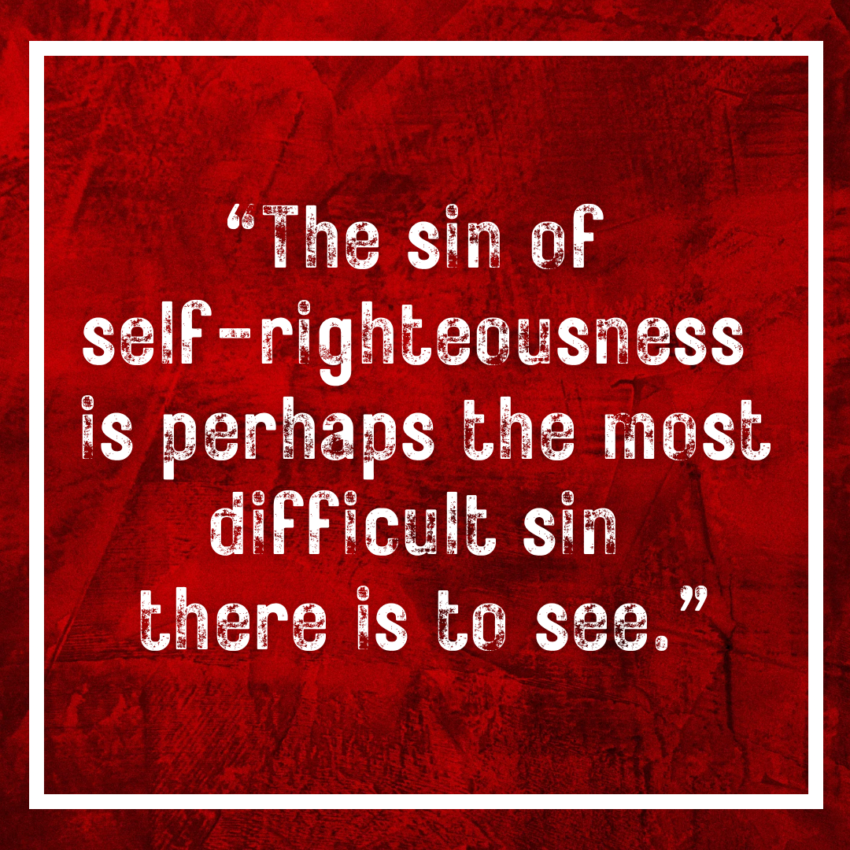In his article, The Self-Righteousness of Job, Stephn Flurry states, “The sin of self-righteousness is perhaps the most difficult sin there is to see.”
As I pondered that statement, I thought about the times in my life where I didn’t see how my own self-righteousness destroyed relationships, hindered my inability to lead or work well with others, and most importantly, kept me from doing things to glorify God, in an attempt to glorify myself.
I have grown a lot over the last two decades, as I have developed an openness to being questioned, the desire to be teachable, the choice to be humble instead of proud, and the recognition that entitlement is a heart issue not something deserved.
One of the ways self-righteousness manifests itself is when we willingly use our talents and skills (or welcome the talent and skills of others), as long as things are going our way. Dysfunction happens when we unknowingly (or worse yet, knowingly) stop using those skills (or allowing others to use their skills) when things don’t go our way. We avoid others who challenge us. We serve as a roadblock to needed conversations. We respond in anger or shutdown when our ideas aren’t picked. The list goes on and on.
If you are unsure if you are secretly struggling with self-righteousness, ask yourself the following questions:
1. Am I guilty of not letting others share ideas because I believe my own ideas are always best (…and perhaps secretly I need the credit that comes with the success of being the one who came up with the idea)?
Philippians 2:3 (NIV) reminds us, “Do nothing out of selfish ambition or vain conceit. Rather, in humility value others above yourselves.”
2. Do I welcome the opportunity to learn from others, or do I insist on only doing things my way?
Proverbs 12:15 (NIV) reminds us, “The way of fools seems right to them, but the wise listen to advice.”
3. Do I often find myself in the middle of dysfunctional relationships, unable to get along with coworkers, friends, or even my spouse, especially when I find things aren’t going my way (…and maybe I haven’t realized yet I am the central person creating the dysfunction)?
James 3:16 (NIV) reminds us, “For where you have envy and selfish ambition, there you find disorder and every evil practice.”
4. Do I look forward to having open discussions and learning from the wisdom others bring, or do I try to shut them down in favor of only using the knowledge I have acquired?
Proverbs 18:2 (NIV) reminds us, “Fools find no pleasure in understanding but delight in airing their own opinions.”
5. Do I respond in love whenever I interact with others or do I respond in other ways contrary to how God has defined showing love?
1 Corinthians 13:4-7 (NIV) reminds us, “Love is patient, love is kind. It does not envy, it does not boast, it is not proud. It does not dishonor others, it is not self-seeking, it is not easily angered, it keeps no record of wrongs. Love does not delight in evil but rejoices with the truth. It always protects, always trusts, always hopes, always perseveres.”
******
THE SELF-RIGHTEOUSNESS OF JOB

